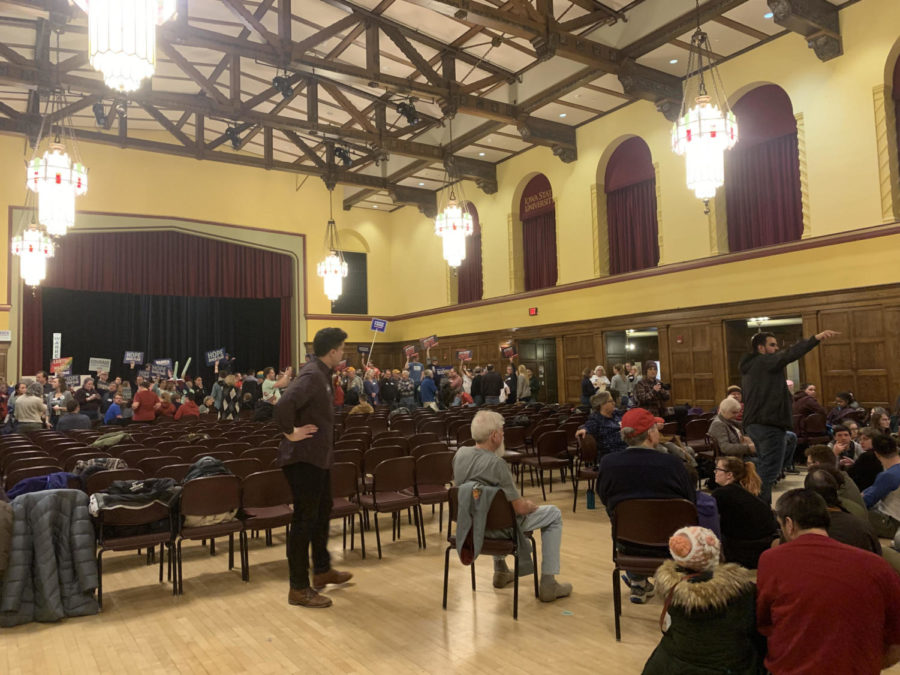Sanders and Buttigieg campaigns request partial caucus recanvass
February 10, 2020
Iowa’s Democratic caucuses on Feb. 3 ended with unprecedented delays in the Iowa Democratic Party’s (IDP) release of results and no official winner, and the race may not be called for days to come with a recanvassing of results pending.
The presidential campaigns of Pete Buttigieg and Bernie Sanders are in a virtual tie in the state delegate equivalents (SDE) awarded from caucuses, which are used to determine a victor. A New York Times analysis found potentially hundreds of precincts across Iowa have inconsistencies in how their results were reported, which could affect which of the two candidates come out on top.
The potentially flawed results the IDP released have led the Associated Press to decline to call a winner in the race, despite Buttigieg’s razor-thin edge over Sanders in SDEs.
“[Monday], the Sanders campaign filed requests for recanvass for 28 precincts, and the Buttigieg campaign filed requests for recanvass for 66 precincts and all in-state satellite precincts — a total of 143 precincts, removing duplicities,” according to a release from the IDP on Monday.
A recanvass would involve checking the math used to tabulate results from the affected precincts.
The IDP’s recount and recanvass committee will review the requests to determine whether they meet its “required standard” and transmit to the campaigns its assessment of the requests to each respective campaign within 48 hours, according to the release.
“In the event of a recanvass, the IDP will analyze the requested precincts to correct any inconsistencies between the reported results and their official record of result from caucus night, as signed by the precinct chair, secretary and representatives of campaigns,” according to the release.
In a press conference Monday, the IDP Chair Troy Price said any mathematical errors in precinct data, such as those flagged by the Times, cannot be adjusted by the state party.
“These sheets are signed not only by the precinct chair and the precinct secretary, they are also signed by campaign representatives; and so for us, they are the official record of what took place in the room, and we do not believe that we should be altering what is the official record of what happened in the room,” Price said. “The course for correcting that is what is starting here today, starting with the recanvass process and then if we requested a recount after that, and so that’s where we are in the process.”
The IDP chair said they will be able to figure out exactly how long that would take and what steps would follow the completion of a recanvass.
“At this point, I can’t tell you exactly how long this will take, but we should have more information in the next couple of days,” Price said.
In a letter to Price, Sanders requested a “limited precinct-level” review and recanvass of results.
“Mathematical errors and inconsistencies in the tabulations for 25 precincts and three satellite caucuses led to at least 2.2312 too many [SDEs] to be assigned to Mayor Pete Buttigieg and at least 2.3942 too few to my campaign,” Sanders said in the letter.
Should Sanders’ claim be reflected in new results following a recanvassing, he would take the lead over Buttigieg in the SDE count. Buttigieg maintains a lead of less than 3 SDEs over Sanders, according to the data the IDP released as of Monday.
The IDP did not release results from any precinct caucus sites the night of the caucuses, instead delaying the results until the following afternoon and releasing partial results throughout the following days until the party had released 100 percent of results late Thursday. Price apologized for the delays and errors in some of the results the party released in a press conference Friday.
“As I’ve stated before, the challenges in reporting data and delays in publicizing results were categorically unacceptable,” Price said. “Iowa Democrats demand better of us, and quite frankly, we demand better of ourselves.”







